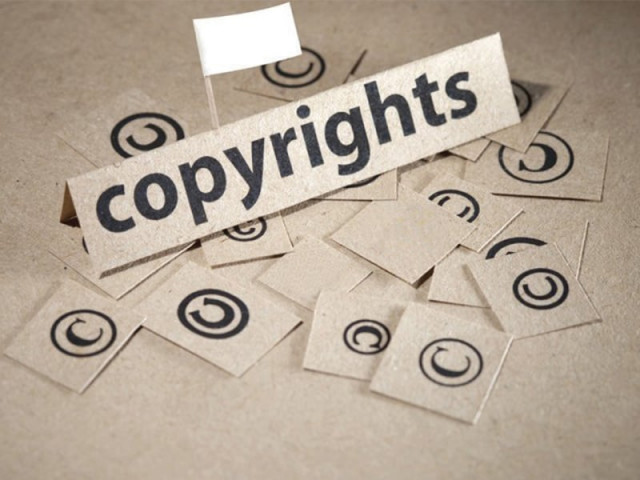Know your rights: Copyright laws
In developed countries, copyright protection is one of state’s primary responsibilities.

Know your rights: Copyright laws
In developed countries, copyright protection is one of state’s primary responsibilities.
Unfortunately in Pakistan, piracy is a major issue. A large number of people watch illegally copied movies, use pirated software or read photocopied books.
This week, The Express Tribune takes a look at copyright laws.
Copyright Ordinance
According to the Copyright Ordinance 1962, copyright is a set of exclusive rights granted to the owner for a limited time to protect the particular form, way or manner in which an idea or information is expressed. Literary and artistic work, music, films, paintings, sculptures, computer programs and databases are covered by the law.
Copyright is the moral and economic right of authors/writers, publishers, performers and producers.
The Copyright Ordinance 1962 is modelled on the Copyright Act of 1914. The Copyright Rules 1967 were framed for the proper working of the ordinance. Significant changes in the ordinance were introduced through the Copyright (Amendment) Act 1992 and the Copyright (Amendment) Ordinance 2000.

Pakistan is a member of both the Berne Copyright Union and the Universal Copyright Convention. Under the International Copyright Order 1968 (issued under Section 54 of the ordinance), the provisions of the ordinance which apply exclusively to Pakistani works also apply to any work first published in a country being a member of either of the two conventions, meaning they have the same protections in Pakistan as locally-produced works.
Accordingly, the copyright subsisting in any work in any member country is protected in Pakistan. Pakistan is also a member of the TRIPS Agreement which contains provisions of the Berne Convention for the Protection of Literary and Artistic Works 1971.
The types of work protected under the ordinance are: (1) literary works (2) dramatic works; (3) musical works; (4) artistic works, including drawings, maps, photographs and architectural works; (4) cinematographic works and (5) records. In 1992, an amendment was made in the definition of “literary work” to extend coverage to computer programmes.
Protecting intellectual property
Sections 18 to 23 of the ordinance lay down the copyright term in respect of different works. For example, the period of copyright of a published literary, dramatic, musical or artistic work (other than a photograph) is the life of the author and 50 years after his death. In the case of a cinematographic work, record and a photograph, copyright subsists until 50 years from the beginning of the calendar year of the publication of the work.
It is possible under the ordinance to assign the copyright in a work either wholly or partially and either generally or subject to limitations and either for the whole term of the copyright or any part thereof.
The owner of a copyright can also grant any interest in the right by licence which should be in writing and signed by him or his duly authorised agent.
The licence may be exclusive or non-exclusive. It can also be granted by the Copyright Board as a compulsory licence. A non-exclusive licensee cannot sue for infringement of copyright unless he joins the copyright proprietor as co-plaintiff.
Pakistan amended its copyright ordinance in 2000. According to Article 24-A of the amended act which is related to the rights of performers and producers of phonograms (audio recording), the performers shall have the right to do or to prevent fixation of their unfixed performance and reproduction of such fixation and broadcasting by wireless means and communication to the public of their live performance.
In addition the producers of phonograms shall have the right to do or to prohibit the direct or the indirect reproduction of their fixation and any rental thereof. The artists and producers maintain these rights for a period of 50 years computed from the end of the calendar year in which fixation was made or performance took place.
Published in The Express Tribune, December 10th, 2014.



















COMMENTS
Comments are moderated and generally will be posted if they are on-topic and not abusive.
For more information, please see our Comments FAQ